To sell soap and cosmetics, understanding the rules of making claims about your products is key. These rules and regulations, created by the FDA (Food and Drug Administration), are put in place for the safety of consumers. Soap and cosmetics should not make claims that could confuse the product with a drug. The FDA regulates and defines cosmetics, drugs and soap differently. It can be a little tricky to understand these definitions and what type of claims are appropriate for cosmetics, drugs and soap.
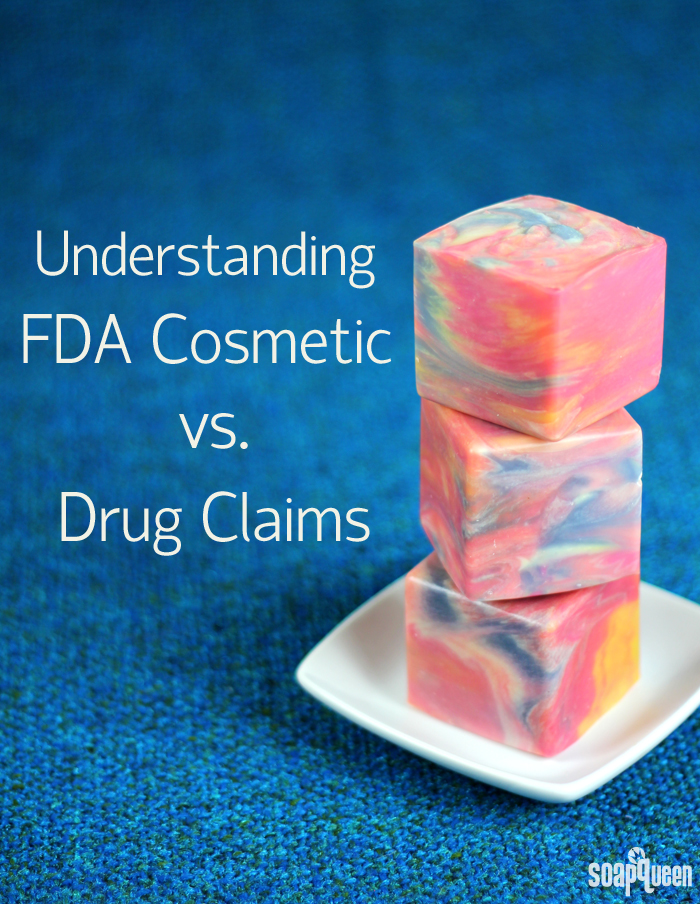 It’s important to first understand the difference between a cosmetic and a drug, as defined by the FDA. According to the FDA website, the law defines a cosmetic as:
It’s important to first understand the difference between a cosmetic and a drug, as defined by the FDA. According to the FDA website, the law defines a cosmetic as:
“The Federal Food, Drug, and Cosmetic Act (FD&C Act) defines cosmetics by their intended use, as “articles intended to be rubbed, poured, sprinkled, or sprayed on, introduced into, or otherwise applied to the human body…for cleansing, beautifying, promoting attractiveness, or altering the appearance” [FD&C Act, sec. 201(i)]. Among the products included in this definition are skin moisturizers, perfumes, lipsticks, fingernail polishes, eye and facial makeup preparations, cleansing shampoos, permanent waves, hair colors, and deodorants, as well as any substance intended for use as a component of a cosmetic product.”
In contrast, the law defines a drug as:
“The FD&C Act defines drugs, in part, by their intended use, as “articles intended for use in the diagnosis, cure, mitigation, treatment, or prevention of disease” and “articles (other than food) intended to affect the structure or any function of the body of man or other animals” [FD&C Act, sec. 201(g)(1)].”
To summarize this statement, a cosmetic is a product that is used to beautify, or alter the appearance. A drug is a product intended to diagnose, treat or prevent a disease. A product is also considered a drug when it is intended to affect the function of the body.
It is possible for a product to be considered both a drug and a cosmetic. This happens when a product has two intended uses. The FDA uses dandruff shampoo as an example. Dandruff shampoo cleanses the hair like a cosmetic, but treats dandruff like a drug. Products that are considered both a drug and cosmetics must comply with requirements for both drugs and cosmetics.
You may be wondering ,”where does soap fit into all this?” Soap is defined in its own special category by the FDA. According to the FDA website, a product is defined as soap when:
- the bulk of the nonvolatile matter in the product consists of an alkali salt of fatty acids and the product’s detergent properties are due to the alkali-fatty acid compounds, and
- the product is labeled, sold, and represented solely as soap [21 CFR 701.20].
If the product meets these requirements, it is regulated by the Consumer Product Safety Commission, not the FDA. If you claim your soap does anything to beautify or alter ones appearance, it is then considered a cosmetic and is regulated by the FDA. For example, if you say your soap moisturizes the skin, it is considered a cosmetic.
Depending on what your product claims to do, it could be considered a drug, cosmetic, soap, or a combination of these categories. Drugs are required to be approved by the FDA, while cosmetics and soap are not. So for example if you were to say that your soap or cleanser helps treat acne, it is no longer considered only soap. It’s now considered a drug as well and would require FDA approval. If you say that your soap is moisturizing and will treat acne, it is now considered both a cosmetic and a drug. Click here to read more about the different approval laws and regulations of drugs, cosmetics and soap.
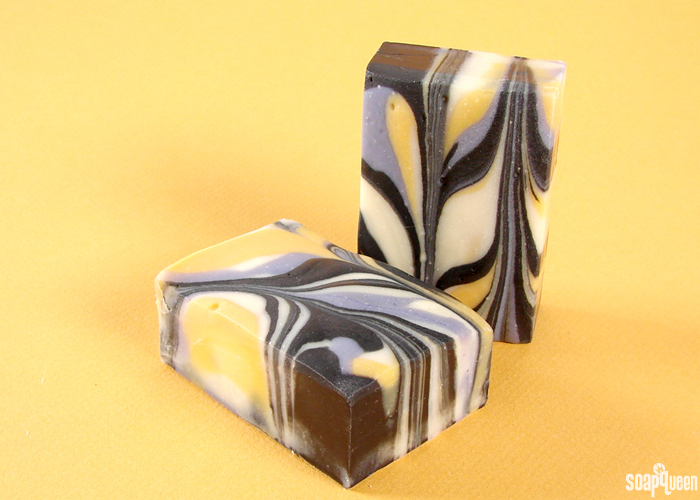 When a product is represented solely as soap, it is regulated by the Consumer Product Safety Commission, not the FDA.
When a product is represented solely as soap, it is regulated by the Consumer Product Safety Commission, not the FDA.
Sometimes, it can be tricky to determine what type of claims are appropriate for cosmetics and soap, rather than drugs. This is because some beauty concerns like aging, acne and rosacea require altering the function of ones body. In general, when describing the function of your products, you should avoid terms such as treat, cure and heal. Common claims for soaps, cosmetics, moisturizers and more that would classify the product as a drug are listed below.
- The product claims to prevent or fight the aging process. This includes helping with wrinkles, age spots, and firmness. Specific claims might include increasing collagen production, decreasing melanin production, increasing cell turnover, reviving skin cells and treating aging.
- The product claims to prevent or fight acne. This includes helping with pimples, cystic acne or acne scars. Specific claims might include reducing the frequency of breakouts, reducing the production of oil or sebum, decreasing the size of pores, unclogging pores, and killing bacteria.
- The product claims to prevent or fight eczema or rosacea. This includes helping reduce redness, rashes and broken blood vessels. Specific claims might include reducing broken vessels, curing or treating redness and curing/healing irritated skin.
- The product claims to provide SPF sun protection, or heal sunburned skin. This includes protection from UVA/UVB rays, healing sunburns or sun rashes. Specific claims might include claiming a specific amount of SPF protection in a product, or claiming it to be healing from sun related skin problems.
So, what type of terms are acceptable for cosmetics in order for them to not be classified as a drug? Terms that are acceptable for cosmetics do not refer to a product curing, treating or preventing a health condition. Acceptable terms include claiming the product is moisturizing, conditioning, calming, skin-loving, deodorizing, cleansing, beautifying and hydrating. Now you might be thinking, “Doesn’t the term moisturizing imply that the product is altering the function of ones body?” This topic is tricky! The term moisturizing does not claim to cure, prevent, diagnose or treat a disease. By including “skin moisturizers,” in the group of products approved as cosmetics by the FDA (see the the statement above), moisturizing the skin is considered beautifying. The function of the body remains the same. Keep in mind, if you make any claims about your soap it is considered a cosmetic.
The FDA takes several things into consideration when establishing the intent of the product. According to the FDA’s website, they look at how the product is advertised. This includes advertising online and other promotional materials. The FDA also considers the consumer perception and the ingredients that are considered to be drugs by the public. This means it’s important to consider how your product is labeled, as well as how it’s described online and other promotional materials.
If you are looking for more information on FDA regulations of cosmetics, drugs and soap, check out the FDA’s website for Cosmetics Laws & Regulations. If you have questions, the FDA does respond to emails (we have tested this several times!), click here to get their contact info. This page is full of links to various articles including the Federal Food, Drug and Cosmetic Act, as well as the Fair Packaging and Labeling Act. It’s so important to make yourself familiar with these laws when making and selling soap.
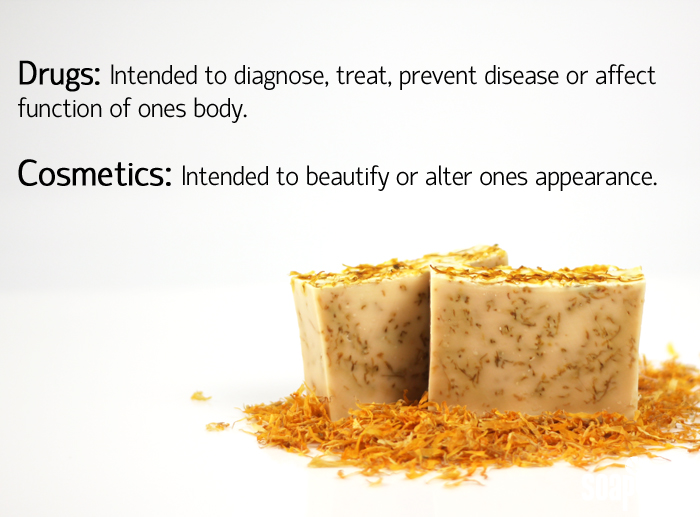
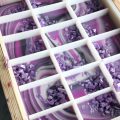
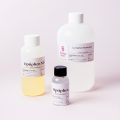

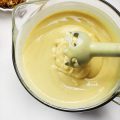
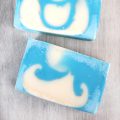
My name is Innocent Deus Buhatwa, ineed material is making soap
You can find soapmaking supplies on our website, BrambleBerry.com. 🙂
-Kelsey with Bramble Berry
Would bath bombs be considered a cosmetic if I only stated that they fizz and color/scent the bath water? I am not saying they clean or moisturize, etc.
Bath bombs are considered a cosmetic, even if you just say they fizz. If you like you can include claims for moisturizing, hydrating, relaxing, etc., or just keep it simple.
-Kelsey with Bramble Berry
I know this topic is old, but there is recent discussions around about whether bath bombs (and salts) are considered cosmetics by the FDA. I did email the FDA and got their quote from the website on what defines a cosmetic, but no confirmation either way on this product. I feel confident it is a cosmetic, but am looking for confirmation/documentation that defines them as such. Thanks for all your great advice!
That is correct, bath bombs are considered a cosmetic as long as they only make claims to fizz in the tub or beautify (moisturize the skin, etc). If the bath bombs include medical claims like curing eczema, they are considered a drug. 🙂
-Kelsey with Bramble Berry
Hello, I am planning on making a body butter, labeling as such with no claims of moisturizing, or medical. Would it still be considered a cosmetic with no claims?
Body butter is considered a cosmetic because it helps beautify (moisturize) the skin. As long as you only claim it beautifies, you can follow cosmetic regulations. If you claim it heals or treats anything, you can follow drug regulations. 🙂
-Kelsey with Bramble Berry
What if a customer asks if we have any soap that helps with acne, and we do the following:
1) we point out “bad” ingredients that might worsen acne that might be in the soap they are currently using
2) we point out that those ingredients are not in the soap we’re making
3) conclude that by using a soap that doesn’t contain the “bad” ingredients, acne might be improved
Would this classify our soap product as a drug according to the FDA?
Hi Ben!
If the customer thinks the soap is specifically to cure their acne, the FDA requires compliance with drug regulations. That is the case even if your label doesn’t say the soap cures acne and even if you don’t specifically say it cures acne but you hint at it. We definitely recommend erring on the side of caution.
You can say the soap is very gentle and great for sensitive skin. If the customer asks if your soap has one of those ingredients, you can definitely tell them it doesn’t! Instead, you can talk all about the oils you used and what properties they have. For instance, if your bars have avocado oil, you can explain that it’s moisturizing while still being lightweight and fast absorbing on the skin. 🙂
-Kelsey with Bramble Berry
I’ve been seeing companies that make claims that their product will help with wrinkles but then on the same page says these comments have not been tested and evaluated by the FDA. Wouldn’t they need FDA approval just to be able to say this?
Hi Liz!
If the customer believes the product helps with wrinkles, even if there is a disclaimer, it is considered a drug and is regulated as such. It’s best to be very careful when labeling your product. If you intend to sell it as a cosmetic, make sure it only claims to beautify instead of treat a condition. Stick to words like skin loving and moisturizing. 🙂
-Kelsey with Bramble Berry
All of this information is so helpful. I haven’t actually started by business yet. I’m planning on ordering supplies this week to perfect my products. I don’t make soap though, I’ll be making lotions, creams, body butters, serums, face mask, etc. So I know all of this falls under cosmetics.
AnnMarie thank you for commenting about using the kitchen. My heart sunk to the floor when I first read the previous person’s comments. I will probably purchase a small table to use instead of the counter just to be sure.
I have a health and beauty blogger that I follow. Although I’ve been making my own items since before I came across her blog I do read her post often. She also has a shop on Etsy. I’m just wondering if I should reach out to her to let her know about these FDA rules because she is breaking them and I would hate for her to get in trouble. For example she has an anti-wrinkle eye stick. And skin firming lotion. Can we use the word skin firming?
Also, I was planning to infuse my oils with different herbs. One product I’m working on is specifically for wrinkles. I know now that I can’t put that claim on the bottle. However, what if someone ask me “why does this product contain gotu kola?” Am I allowed to explain this?
Hi Liz!
If your customer believes the ingredient will firm the skin or get rid of wrinkles, whether it’s on the label or you tell them, the FDA does consider that a drug and regulates it as such. It can be tricky to explain why you added the ingredient! I would recommend saying something like, “It’s a skin-loving, moisturizing oil that is thought to help with wrinkles. However, it hasn’t been tested by the FDA to prove that it gets rid of wrinkles.” It may feel a bit weird, but just make sure the customer knows this is a cosmetic and not a drug. You can also tell them you added the oil because it’s so nice and moisturizing on the skin and skip the wrinkle part entirely. It’s always better to err on the side of caution. 🙂
If you’re concerned about the blogger mentioning the anti-wrinkle eye stick it’s up to you whether or not you contact her! Some great books to recommend are Soap and Cosmetic Labeling and Good Manufacturing Practices by Marie Gale. They have a ton of information about labeling that’s easy to read.
Soap and Cosmetic Labeling: https://www.brambleberry.com/Soap-And-Cosmetic-Labeling-Book-1-Book-P3663.aspx
Good Manufacturing Practices: https://www.brambleberry.com/Good-Manufacturing-Practices-P5580.aspx
-Kelsey with Bramble Berry
I have a question about a salve I make and sell. I call it “Soothing Salve” The only claim I make on the label is that is sooths sunburn, mosquito bites, bee or wasp stings, and cuts, scrapes and burns. Is this considered a medicinal claim? Thanks!
Hi Amy!
If the product claims to treat any medical conditions, it is considered a drug. So, the soothing salve may be considered a drug by the FDA. If there is any chance your customers may think the salve cures or treats a cut or sunburn, it may need to be regulated as a drug. To be on the extra safe side, I would recommend saying the salve is gentle and moisturizing, but not soothing to cuts and burns, etc. 🙂
-Kelsey with Bramble Berry
Amy, did you end up registering with FDA for your salve?
I have a question that might be incredibly dumb- I run a blog in conjunction with an online store, that does ingredient spotlights. If there is a fact checked (and footnoted) medical use for the ingredient, that a I mention in the blog, but I also say that I use the ingredient in products for a completely different, strictly cosmetic reason, am I still making a drug claim about my products? For example, I use charcoal as an ingredient, and in the blog post, I mention the use of charcoal in medicine, as a means of absorbing accidentally (or intentionally) ingested toxins, just as a cool fact about charcoal. The post goes on to explain that the charcoal is added to products to help cleanse the skin and to give it a black color. Did I make a drug claim that could get me in trouble with the FDA?
Hi Mack,
That’s a great question. Basically, if there are any links from your e-commerce site to another site that makes drug claims, then your website can be cited for making drug claims. In fact, this happened a couple of years ago to a cosmetic supply business that’s very close to us. You can see the letter the FDA sent them here: http://www.fda.gov/ICECI/EnforcementActions/WarningLetters/2014/ucm425131.htm
And here is their blog post explaining some of the changes they made: http://library.essentialwholesale.com/fda-compliance-natural-product-business/
So it is best to steer clear of all medical claims – even if they are on separate websites.
Question if I make and sell your melt and pour soap using fragrance and mica. I make no claims just label it with all the ingredients can the FDA come visit my shop.
Hi Sandy!
I’m not entirely sure how the FDA determines to who to inspect and who not to! In Robin’s case, they found her through an online search. You can read more about her experience here: http://www.soapqueen.com/business/a-surprise-visit-from-the-fda/
To be on the safe side, we recommend proper FDA labeling and following Good Manufacturing Practices. It’s important to follow the regulations when selling soap. 🙂
Read more about labeling your soap here: http://www.soapqueen.com/bath-and-body-tutorials/cold-process-soap/how-to-label-cold-process-soap/
The difference between drugs and cosmetics here: http://www.soapqueen.com/business/understanding-fda-cosmetic-vs-drug-claims
And Good Manufacturing Practices here: https://www.brambleberry.com/Good-Manufacturing-Practices-P5580.aspx
-Kelsey with Bramble Berry
Thank you very much for taking the time to research and then pass on your knowledge. As others have stated I too am appalled at some of the claims made on homemade and also commercial products.
My goal is to make soaps, lotions and potions that friends and family will enjoy.
You’re very welcome Kim! Handmade products feel so amazing on the skin. I know my friends and family enjoy the soap I send them. I’m sure your friends and family definitely will too. 🙂
-Kelsey with Bramble Berry
This is a very important, yet often neglected or ignored topic. One good spin around YouTube and many websites can provide much evidence that many soapers don’t know these rules and regs, or worse, simply choose to ignore them.
There are a couple of things that could be added here. To my knowledge, if you’re formulating cosmetics, you must not do so in the same place where you prepare food, i.e., your kitchen, according to the Good Manufacturing Practices (GMP) set forth by the FDA. Yet most soapers do that.
Second, if you’re making cosmetic claims on your soaps, you should be following the GMP for the production of cosmetics. So again, that means making soap in your kitchen is out.
I don’t think of soap as “moisturizing.” It has no “moisture” in it. The whole point of the curing process is to evaporate out any remaining water in CP soap. So where does the moisture come from? The faucet or shower head.
My experience with mass-produced commercial “soaps” commonly found in the grocery aisles is that all the harsh chemicals that actually make them “detergent bars,” are what strips the oils from my skin, leaving me feeling like a parched lizard. This doesn’t happen with true soap like we make. So I think the very best thing to say about true soap is not that it’s “moisturizing,” but that it’s void of such chemicals and includes oils that are “skin conditioning.” Such oils seem to leave a protective barrier, a “conditioning,” while at the same time don’t strip the skin the way the commercial bars do because they don’t contain the nasties. Really, any good soap maker or user of a well-formulated soap will confirm this. Even though I live in an arid semi-desert climate, I need no lotion when I use true soap. That speaks volumes to this parched lizard.
Anyone can legally make a drug claim on their soap or cosmetic PROVIDED they follow the extremely strident rules and regs set forth by the FDA for the production of drugs. That means a squeaky clean lab facility, clinical trials, regular mandatory inspections of your facility, routine product testing, registration of your facility with the FDA, submitting ingredient reports and other documentation, proper labeling with the “active ingredient” that constitutes it as a drug, listed at the top….and more. I have yet to find a small producer capable of holding to these high standards of production, so flippantly making any drug claim could get you into some major hot water, if your company or product is reported to the FDA, with forthcoming warning letters, orders to cease and desist, and possible fines and imprisonment.
If a soap maker is demonstrating how she “naturally” gets rid of ants in her soaping room, and is making drug claims on her soap, stating it’s good for acne, I’d be questioning her ethics, particular if she’s been informed of the law. I would say that the mere mention of any skin condition like acne, psoriasis, rosacea, eczema or anything else where disease or infection is the issue is suggestive of a drug claim, no matter how you word it.
Then there’s the issue of a “bug off” soap for keeping bugs away. Is the ingredient a registered pesticide or not? Is the producer registered with the USDA?
Then there’s the “organic” claim and the “Made in America” claim… What are the rules regarding these claims?
I’ve purchased soap from a supposedly longtime soaper who didn’t even have the weight on the product listed on primary display panel, let alone anywhere else on the packaging. And it makes me wonder…
Much to consider if you want to stay in business – and grow it. As it stands right now, small makers are flying under the radar, but I’m afraid the time will come when small cosmetics manufacturers will be forced into mandatory reporting, with new rules and regs more than likely coming, (presently threatening on the horizon,) and many small makers will bite the dust, unable to comply. Better to know the GMP now and practice it faithfully before that happens.
So my final thoughts are this: Know the rules and share the knowledge with your buyers to gain their trust and confidence in your abilities. Then make soap that is (1st) visually appealing, (2nd) smells oh-so-ab-fab!, and (3rd) doesn’t leave you feeling like a parched lizard! That’s the order in which great soap flies out the door, first visually, then through the olfactory sense, then through touch. Three of the five senses come into play, and generally in that order, especially if your selling online.
I’d love to see everyone get up to speed! With a population of 300 million in the U.S. alone, and only, at best, 300 thousand small makers here, competition is miniscule. But if you want to stand out? Know all aspects of your business, including the legal ramifications. Then make great soap! Oakie doakie! Off my soapbox now! 🙂
Hi Patricia!
Thank you so much for taking the time to write such a dense comment. Yes, it is a rather complicated topic. I have included some links below if you, or other readers would like to learn more about Good Manufacturing Practices.
Good Manufacturing Practice (GMP) Guidelines/Inspection Checklist: http://www.fda.gov/Cosmetics/GuidanceRegulation/GuidanceDocuments/ucm2005190.htm
Draft Guidance for Industry: Cosmetic Good Manufacturing Practices: http://www.fda.gov/Cosmetics/GuidanceRegulation/GuidanceDocuments/ucm353046.htm
Regarding food, the GMP Checklist above states “Consumption of food or drink, or use of tobacco is restricted to appropriately designated areas.” This statement is rather ambiguous, and could certainly be open to interpretation.
We also have a great class at Bramble Berry on GMP that includes 31 digital handouts to get anyone up to speed on GMP here: https://www.brambleberry.com/GMP-Good-Manufacturing-Practices-Master-Class-P5607.aspx
I think your points about a soap being “moisturizing” are good ones! Personally, I definitely find some soaps to be more skin-loving than others. I often describe these soaps are more moisturizing, but I really like your term “skin-conditioning.” I might need to use that one in the future :).
It is indeed legal to make drug claims with your products, provided you can jump through all the necessary hoops which are very demanding. We would hate to see any small business owners get in trouble with the FDA, so we always recommend erring on the side of caution when making any types of claims about cosmetics or soap. The term “organic,” also requires it to meet strict standards set and approved by the National Organic Program. I’ve included a link below if you or anyone reading these comments would like to read more about that :).
Organic Labeling Standards:
http://www.ams.usda.gov/grades-standards/organic-labeling-standards
I did a little research regarding the “Made in America” claim, and the link below is very helpful! In short, the Federal Trade Comission states that for a product to claim “Made in the USA,” the product must be all or virtually all made in the US. According to their site, ” ‘All or virtually all’ “means that all significant parts and processing that go into the product must be of U.S. origin. That is, the product should contain no — or negligible — foreign content.” I hope this helps! For many soapers and crafters, it would be hard to make this statement as many oils, butters and ingredients come from around the world.
Complying with Made in USA Standard:
https://www.ftc.gov/tips-advice/business-center/guidance/complying-made-usa-standard
I hope these links help answer your questions. Thank you for taking the time to leave such a thoughtful comment. If you’re interested in staying up to date with upcoming regulations that affect the small business soap and cosmetic industry, I urge you to join the Coalition of Handcrafted Entrepreneurs via the link below. This coalition supports protecting both consumers and small businesses, and will keep you up to date on any progress in this area.
Join the COHE:
http://www.coalitionofhandcraftedentrepreneurs.com/join-us/
Thank you for a great reply, A-M!
About that statement, “Consumption of food or drink, or use of tobacco is restricted to appropriately designated areas.” I would interpret that to mean, “Don’t EAT or SMOKE in your production area. Eat in the lunchroom and smoke outside.” It would only be logical then to conclude not to PREPARE the food for consumption in that same area “for the same reason” – not to get pickle relish in your sugar scrub! Not to mention cigarette butts…. Eww on both counts… 🙂 I don’t believe that statement was written at a time when there were many makers formulating product at home.
I think I have all those links, except your 31 handouts link. I appreciate that you go the extra mile to educate everyone. The reason I brought up the various claims that can be made was to point out those that some have never even thought to consider. And to my knowledge, there’s no such thing as “organic” beeswax or honey – unless your supplier has his bees on lockdown on a very large organic farm. (Impossible, by the way…they fly wherever they want…which could be to the farm down the road, miles away – the one that does use pesticides.)
I think all those hoops involved in running a drug production facility include a high price tag. I’ve learned slapping a label on a chemical, such as a pesticide you’ve produced, can cost upwards of $50K, (a figure I heard 15 years ago from a reliable source,) though I don’t know about getting a drug on the market. But I speculate it’s not cheap either.
You are spot on with the “Made in America” claim since most of our ingredients don’t come from the U.S., but from around the world. But what if someone says, “Made in “such & such U.S. state” or “such & such U.S. city”? Isn’t that making the same claim, albeit in a roundabout way? Are their any other cities outside the U.S. called Los Angeles or New Orleans, for example? Not that I’m aware of. The whole point of the Made in America claim is to support American manufacturers of things that originate from here, not that a soap maker lives and works here and just happens to pull ingredients from elsewhere and put them together in Rhode Island.
There are endless ways to formulate a soap, but indeed some soaps are definitely more skin-loving. And I think it’s because they are high in the oils known as “conditioning” oils, so why not use that term? I’ve learned to throw out some, not all, of the numbers at SoapCalc, like the INS and Iodine Value, and push the envelope to get my “conditioning” oil number as high as I can. I like to look at the acid numbers there, too. The “hardness” and “bubbliness” numbers appear to be low, but guess what? These bars are perfectly bubbly – on the “creamier” side as bubbles go (which I prefer anyway,) and are just as hard as they need to be. They aren’t mushy at all. So I don’t quite “get” SoapCalc. And I already know you aren’t impressed by INS and Iodine Value either! I’ve made one of your formulas from your Soap Crafting book and IT WAS AWESOME! And it was “off the charts” at SoapCalc – like mine! Haha! (Who’s “Bob” anyway?? But I do have one of his books, too. 🙂 )
So I think we’re on the same page here, just that we call it something different. (Making a mental note to look for those recipes you call “moisturizing!”) But I like the term “skin conditioning” because I really do feel using lots of “conditioning” oil does provide a barrier that locks in the water (also known as “moisture”) pouring out from that metal thingie in my bathtub. How can the FDA argue with that reasoned terminology? If they did, I’d have to get out my nail-spitting gun and march on Washington…lol.
So much good discussion here on great business practices, claims and GMP. I agree, food and drink should stay separate from the production area as much as possible though do advocate for ‘small producer’ GMP guidelines to take into account the differences in small batch producers versus the giant industrial producers of the world. In addition to the possibility of contaminating your products, I think it’s a safety issue as well. For example, I would be horrified to hear about somebody picking up liquid lye rather than their coffee! That being said, for many soapers the kitchen may be the only area to make soap. I think the key is planning ahead to make the space as clean and organized as possible to avoid any cross contamination. I know some soapers who use a separate counter or table, and that works really well =) Many great soapers and businesses started from their kitchen counter (Estee Lauder, Proctor & Gamble, Lush, Mary Kay) and I’d hate to pull the ladder up after them (us).
My guess is that the claims regarding to a city or state are very similar to the “Made in USA” claim. Just like making drug claims, I would err on the side of caution and avoid making this claim. It’s always better to be safe than sorry.
I’m so glad to hear that you enjoyed the recipes from the Soap Crafting Book. Soap depends so much on personal preference that I try to formulate recipes based on what I like, and hope others like the same =). Thanks again for taking the time to share your thoughts here Patricia! It’s a fantastic discussion.
Thanks, A-M! Lots of food for thought. I guess I’m fortunate that I have a large room off my kitchen to play in, and just use the kitchen sink for clean-up. Thank you, too, for your input regarding the Made in America claim. I’m hoping to get around to try more of your Soap Crafting recipes, but my life is crazy busy and I’m in the middle of a big ol’ move. I try to read all your posts and wish I could post more often, but I find this is a terribly important topic so I thought I’d toss out my two cents….well okay…more like 25. o_0 And that Miss Lily is totally adorable, by the way! Give her a squish for me!
Thank you so much for all this wonderful information! On the topic of “Made in USA”, due to the fact that 85% of my ingredients do come from other countries, and I am in a tourist destination area, I simply have “Hand crafted in…”
I’m curious about this: what if you don’t make any drug claims at all, but you do say “This is great for dry skin, or this is great for acne skin, or mature skin…”? Not actually saying it treats acne in any way, just that it’s good for that type skin, for example.
Or, say “There is Carrot Seed essential oil in here and that is very good for mature skin”? Not saying it will reduce wrinkles, but it’s good for that kind of skin.
What about that? Thanks.
P.S. I don’t actually make any claims about my soap. I just say it’s good for the skin and that’s it. 🙂
Hi Martina!
That’s a great question! It’s one of those tricky gray areas when it comes to labeling. While it’s not specifically stating that the product helps cure acne, it may be considered a claim because it’s hinting that it may help with acne. I would recommend being on the safe side and sticking to terms like hydrating and calming.
People can also contact the FDA if they have questions about specific terms. 🙂
FDA contact page: http://www.fda.gov/AboutFDA/ContactFDA/default.htm
-Kelsey with Bramble Berry
Thanks, Kelsey!
For medical claims, i.e. acne, eczema, psoriasis, etc., you need to tread lightly. Word choice matters. Don’t say this soap is “great for acne;” say it’s “great for acne-prone skin.” “Great for acne” alone implies the soap will do something to improve the acne. Although this may be true depending on the ingredients, it’s not a claim you’re legally permitted to make. “Great for acne-prone skin” implies the soap won’t aggravate the condition. In the case of wrinkles, which are completely aesthetic, you can make much broader statements. As long as you’re using ingredients that are clinically-proven to reduce the appearance of fine lines and wrinkles at effective concentrations, then you can make the claim that the ingredients used in this product have been clinically-proven to reduce the appearance of fine lines and wrinkles. But you CANNOT say this particular product has been clinically-proven to reduce the appearance of fine lines and wrinkles, unless you’ve actually conducted a successful clinical trial. As to the use of ingredients that haven’t been extensively researched, be wary of making claims based on “reputation” or “history of use.” It sounds very witch doctory. If you cannot explain to a customer exactly why it is that carrot seed essential oil is good for mature skin, then don’t say that it is. (PS – I think you may find that carrot root extract has a superior chemical profile and it’s a lot cheaper)
Oops! I meant to say “suitable for acne-prone skin,” not “great for acne-prone skin.”
Thank you, Anne! Fantastic explanation!
Anne, I forgot to ask you- do you find that Carrot Root Extract survives in CP soap? Or do you use it more in creams and stuff? Thank you very much!!!
Anne, you said “As long as you’re using ingredients that are clinically-proven to reduce the appearance of fine lines and wrinkles at effective concentrations, then you can make the claim that the ingredients used in this product have been clinically-proven to reduce the appearance of fine lines and wrinkles.”
That’s actually not true, and doing that can get you into trouble.
Read here, the information about ingredient claims is toward the bottom of the post: http://blog.mariegale.com/fda-cracking-down-on-cosmetic-product-claims/
Hi Anne and Jane!
Thanks so much for your comments! When it comes to labeling, we think the best course of action is to be on the safe side. If you’re not sure if the term is a drug or a cosmetic claim, it may be best to stick to other terms that are safe for cosmetics, like skin-loving. 🙂
You can also contact the FDA with questions! They may be able to clarify that for you. Find their contact information here: http://www.fda.gov/AboutFDA/ContactFDA/default.htm
-Kelsey with Bramble Berry
Great piece. I was actually thinking about making and selling activated charcoal soap (for acne) does this now mean I can’t or just that I have to have it approved by FDA?
Hi Sam!
So glad you like the post! If your soap claims to treat acne, the FDA does consider that a drug and it does need to be tested and regulated by them. If you want to pursue that testing process, you can check out their website for more information! You can also modify the labeling so the soap doesn’t claim to treat acne. Instead it can say something like cleansing or skin loving. 🙂
-Kelsey with Bramble Berry
Sam, that’s the same thing I was wondering about because I see so many people selling that type of soap and calling it “Detox Soap”. That labeling would obviously be misleading, but I guess they’re willing to take their chances.
When it comes to labeling, we definitely recommend sticking to terms used for cosmetics, unless you can do the FDA testing process. While the FDA may not have the resources to check every small business, we would hate for someone to get a warning letter from them. We think better safe than sorry is the best course of action when it comes to labeling. 🙂
-Kelsey with Bramble Berry
Wonderfully informative! Thanks for putting this together 🙂
You’re welcome Margaret! Thanks for reading. 🙂
-Kelsey with Bramble Berry
Great information! Thank you. I myself am very careful to not make any claims about my soap or products. If asked I simply refer to the properties ascribed to the oils or ingredients used to make it; such as “easily absorbed into the skin”, “rich in vitamins”, “fatty acids”, etc. I would never want to be faced with having to support any certain claims, and I am no dermatologist or scientist qualified to make them.
You’re welcome, glad you like the post! Also, I think that’s a nice safe route to take! When in doubt, it’s best to err on the side of caution. 🙂
-Kelsey with Bramble Berry